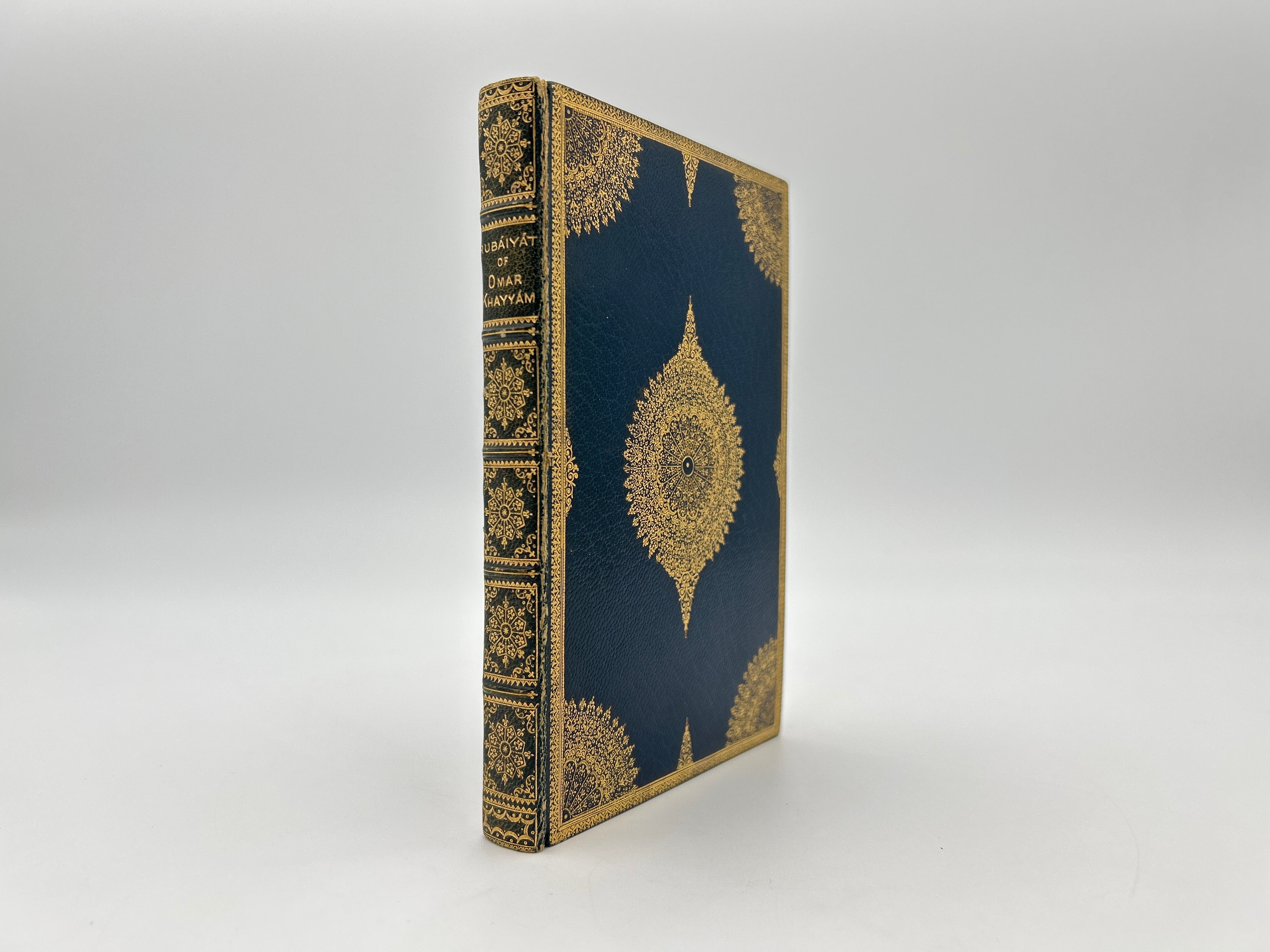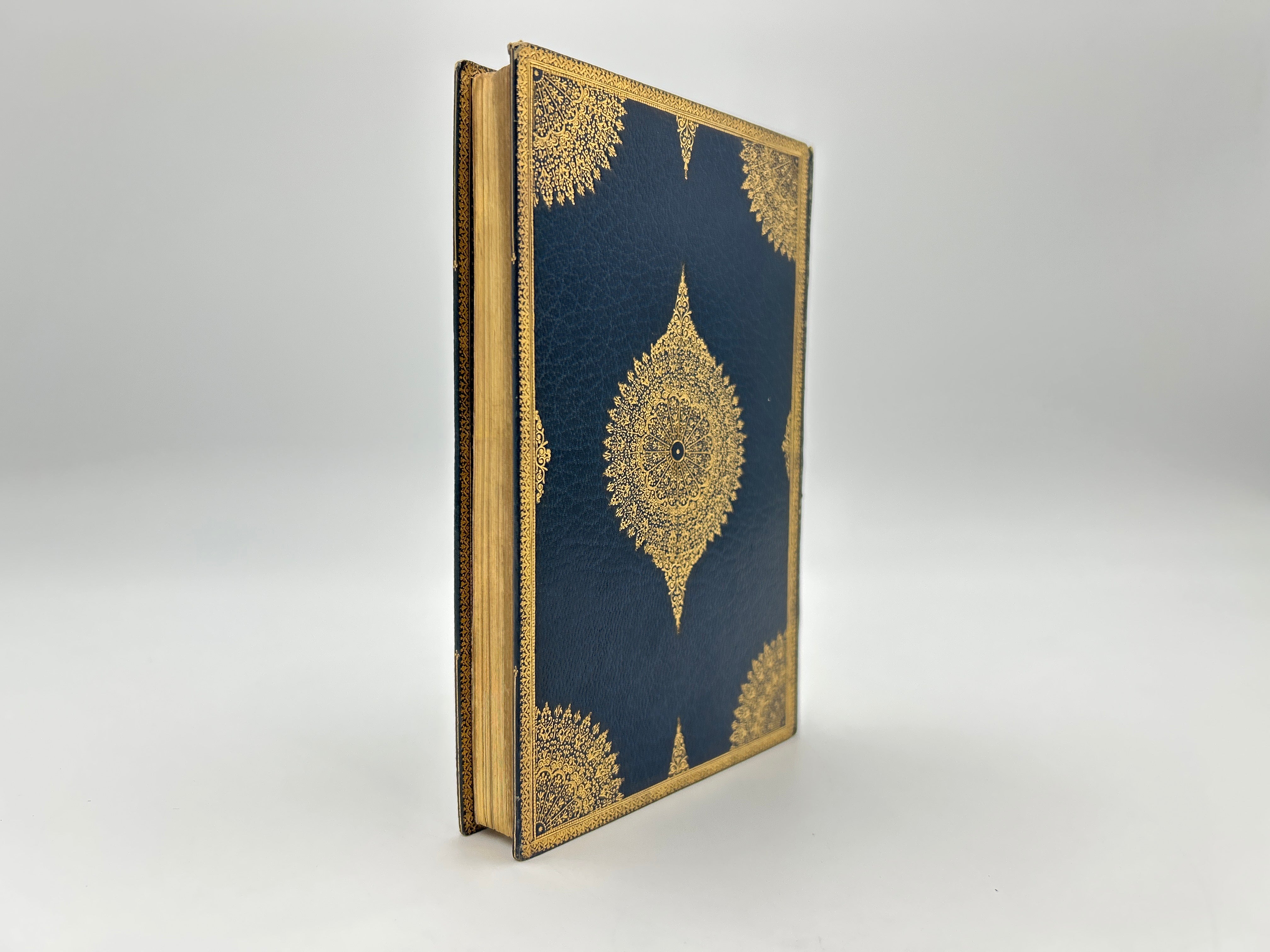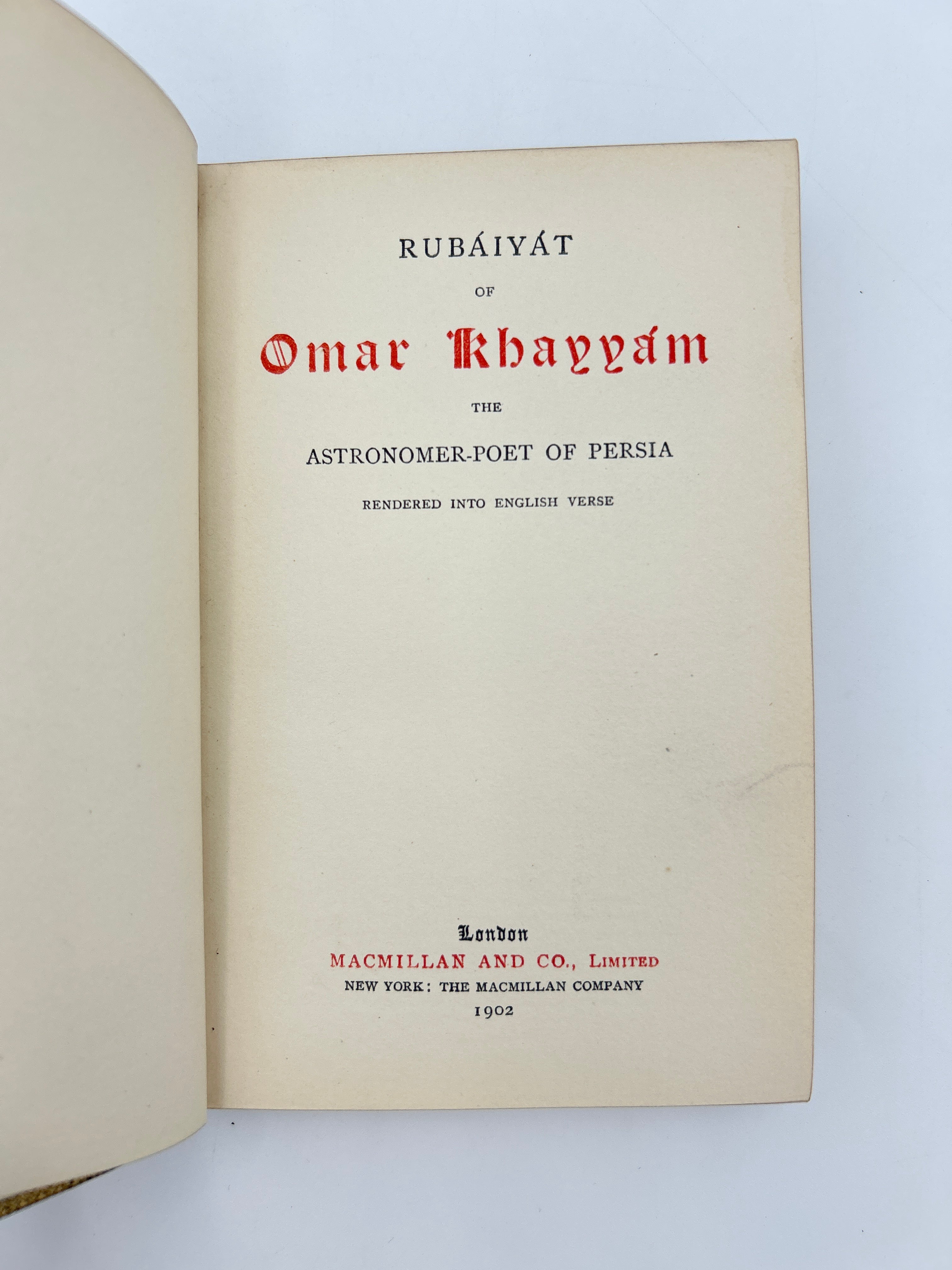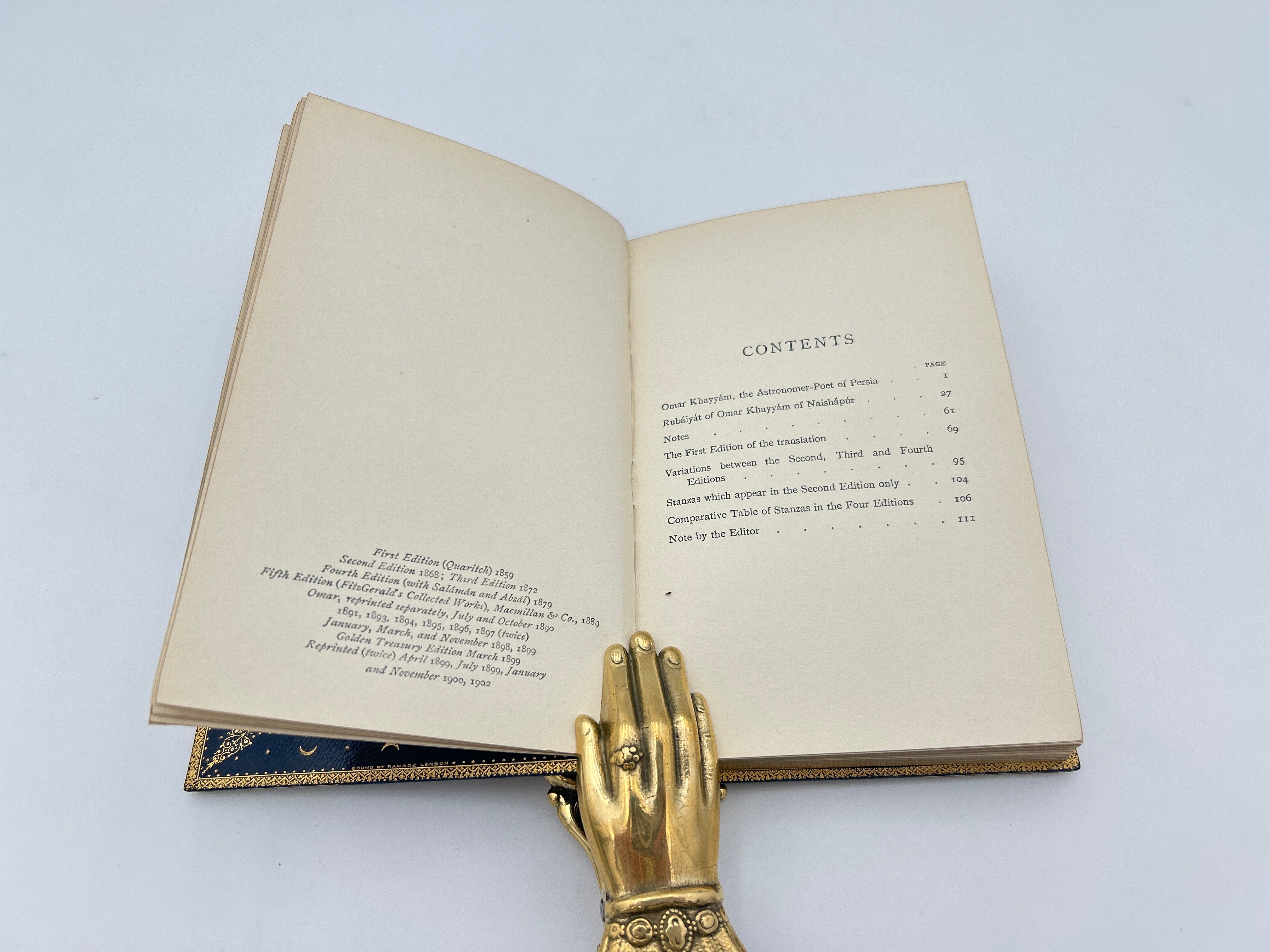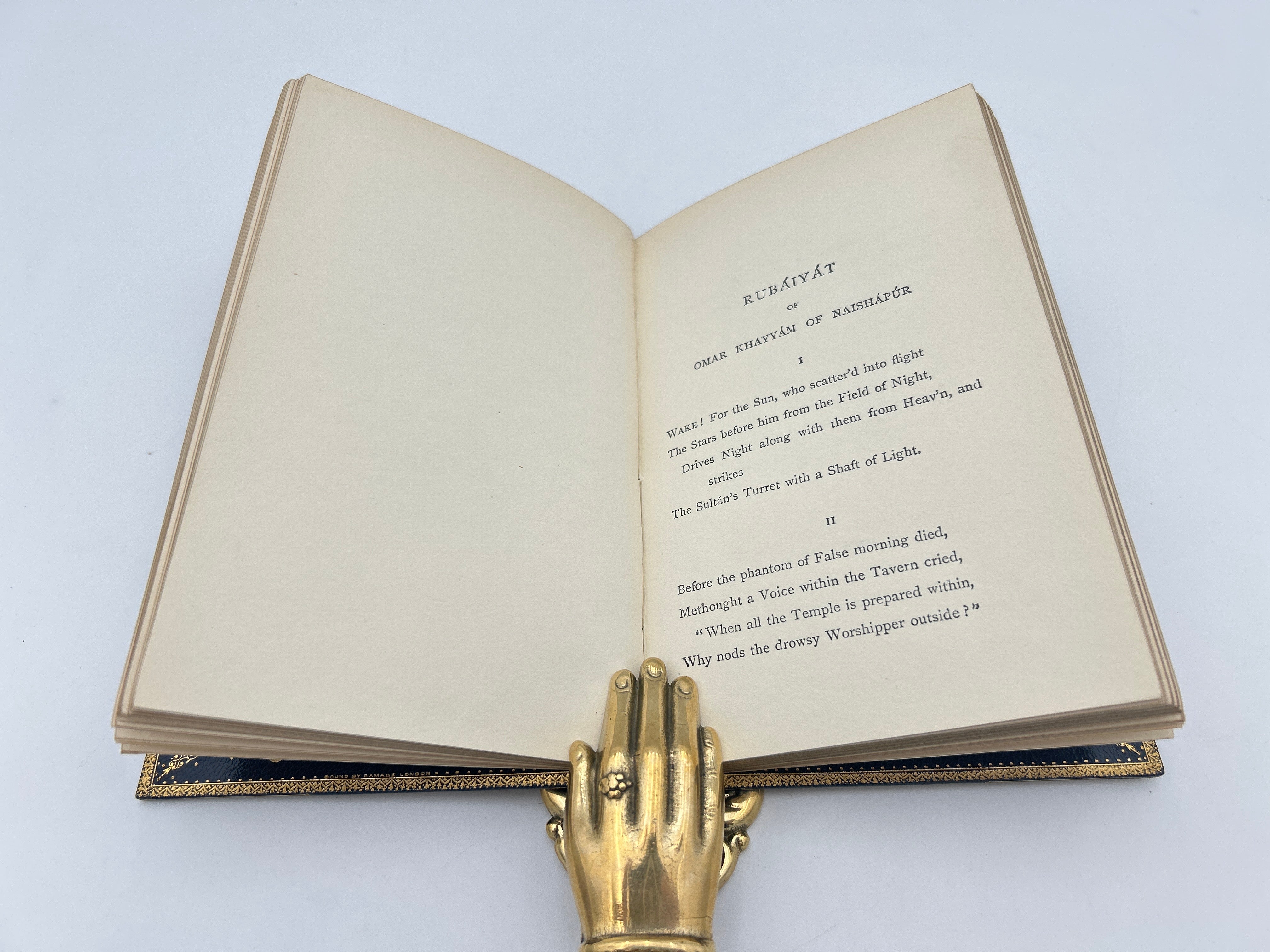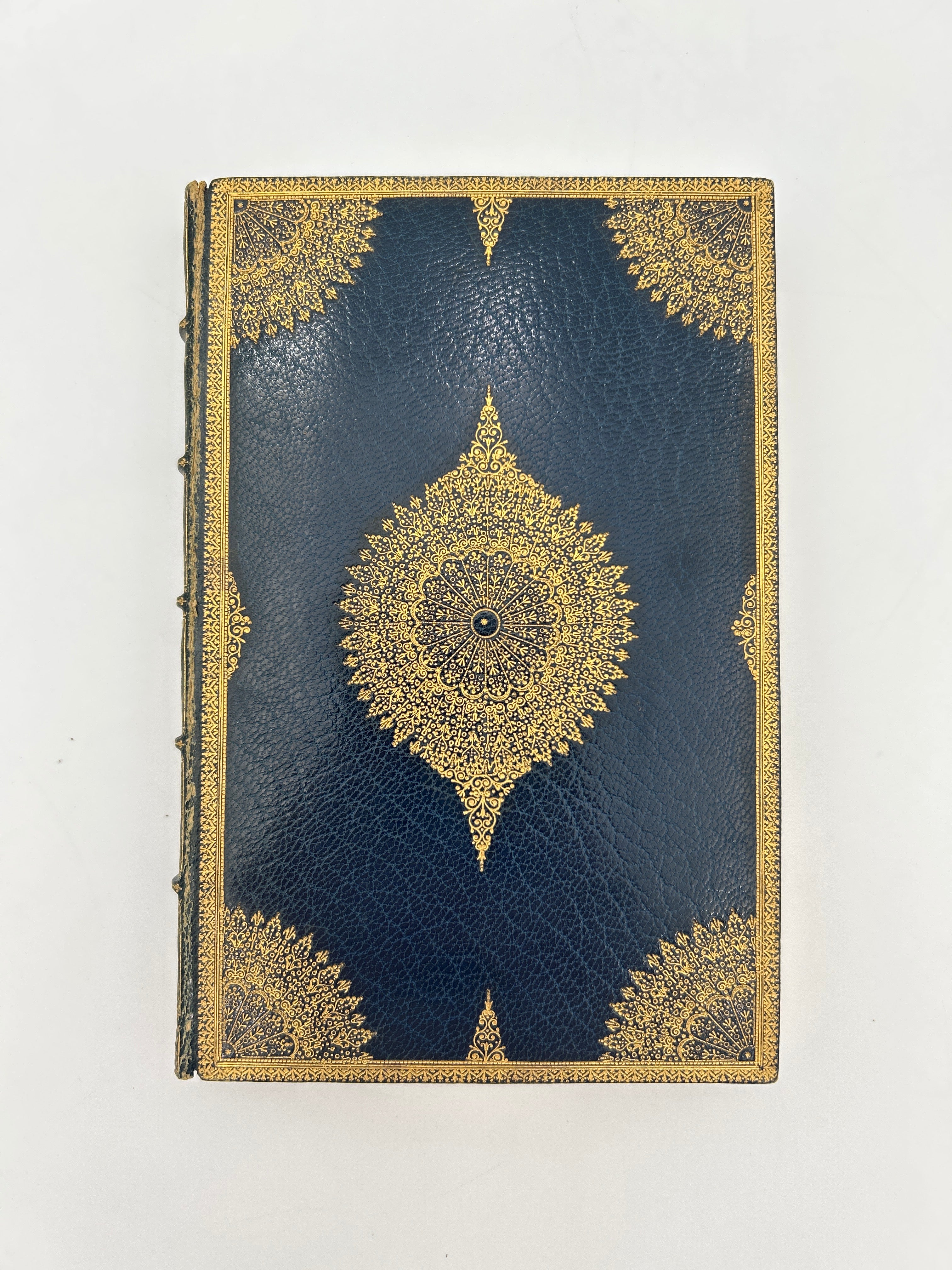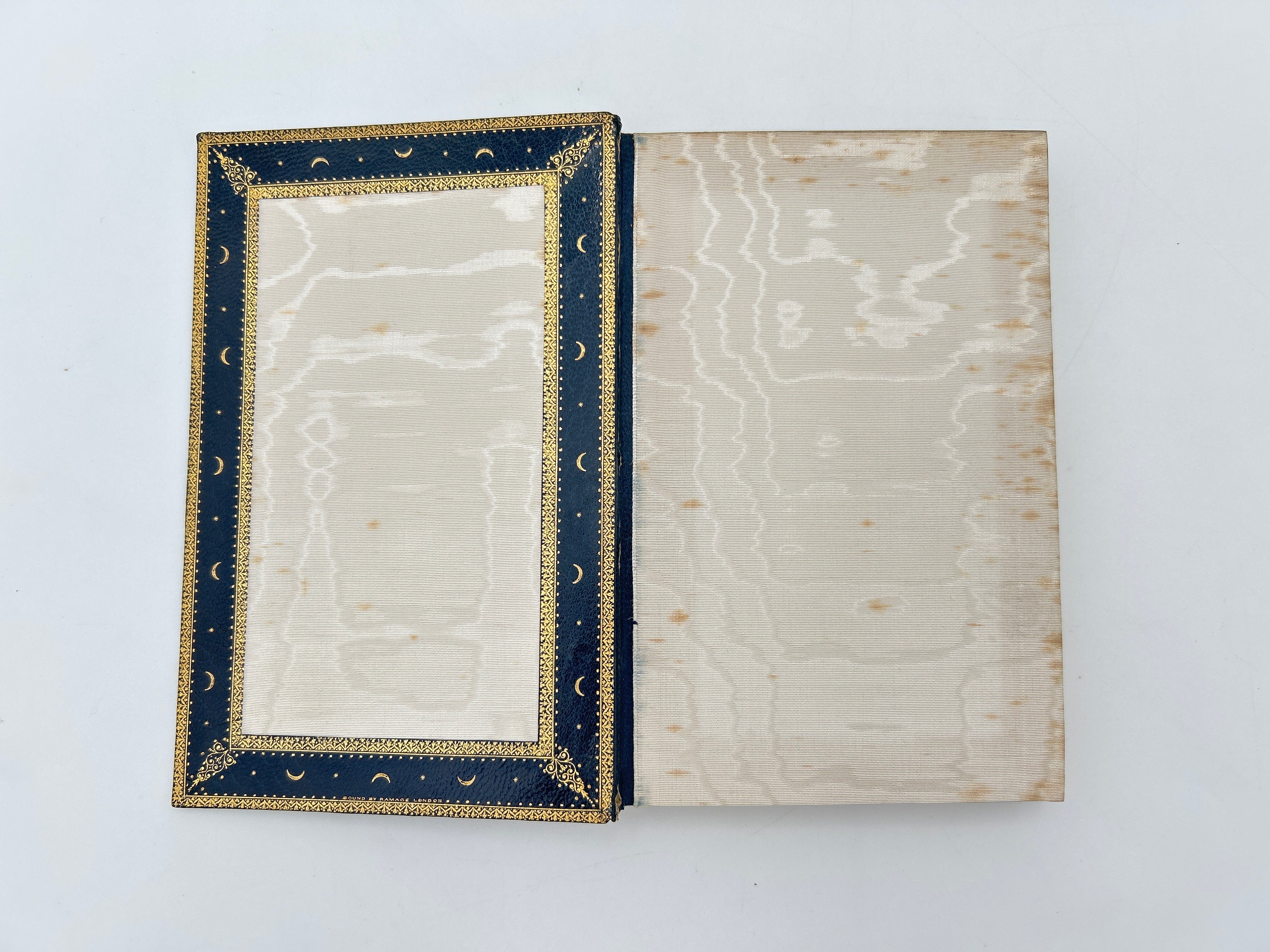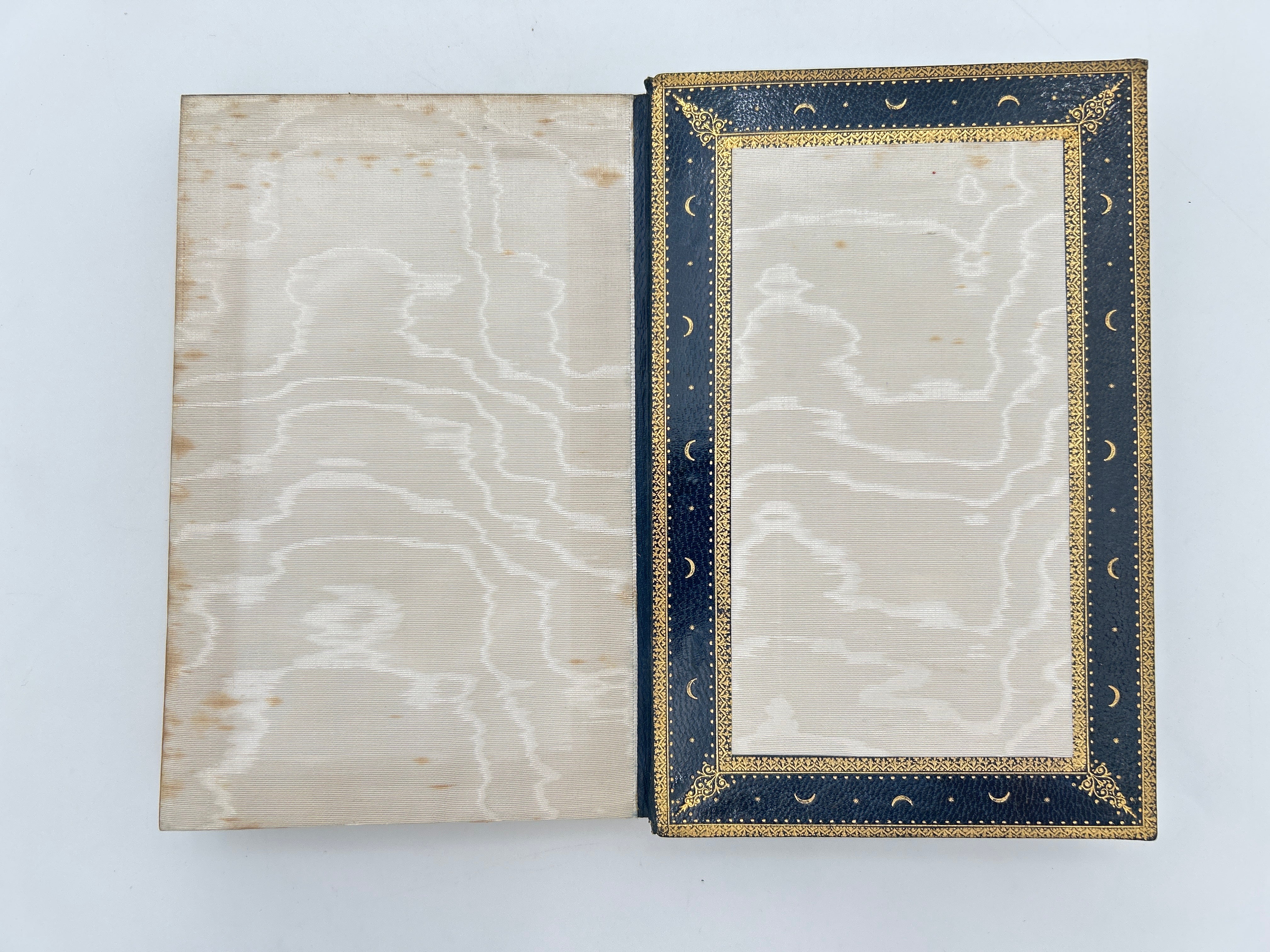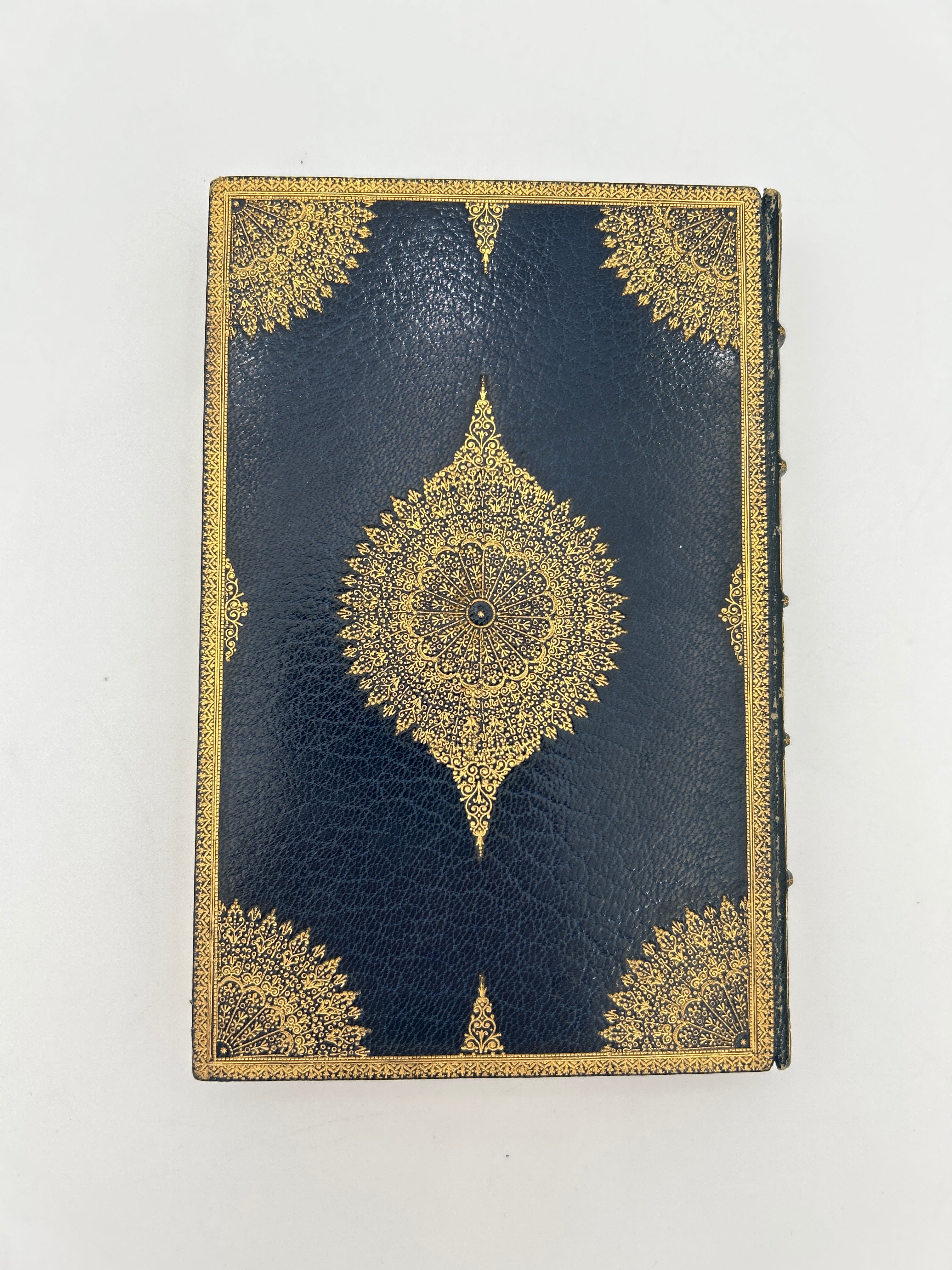Rubáiyát of Omar Khayyám
Couldn't load pickup availability
5b Omar Khayyám, Macmillan and Co. London, 1902
Notes
The Rubáiyát of Omar Khayyám is a collection of quatrains (rubáiyát) attributed to the Persian poet, mathematician, and astronomer Omar Khayyám (1048–1131). Its most famous English version, translated and adapted by Edward FitzGerald in 1859, captures themes of life, mortality, love, and the fleeting pleasures of existence. FitzGerald’s poetic reimagining emphasizes a carpe diem philosophy, urging readers to embrace the present moment in the face of life’s uncertainties.
The Rubáiyát of Omar Khayyám has a poignant connection to the Titanic tragedy of 1912. A rare and lavishly illustrated edition of the book, bound in gold and adorned with jewels, was aboard the ship as it sailed on its ill-fated maiden voyage. That particular copy, created by London bookbinder Sangorski & Sutcliffe, was considered a masterpiece of craftsmanship. Known as the “Great Omar,” it was being transported to an American buyer when the Titanic sank.
The Rubáiyát’s themes of life’s fleeting nature and the inevitability of mortality add a haunting resonance to its association with the Titanic, symbolizing both the fragility of human creations and the transience of existence. The book was lost in the Atlantic, further deepening its mystique and connection to one of history’s most infamous disasters.
Description
Stunning deep blue leather hard back cover with decorative gilt designs adorning the front and back boards as well as the spine with gold lettering and five raised bands on the spine as well. Gilt edges, white marbled endpapers, and decorative gilt turn ins. Some foxing to the endpapers and minor wearing of the blue leather along the spine hinge on the front cover, otherwise in pristine condition.
